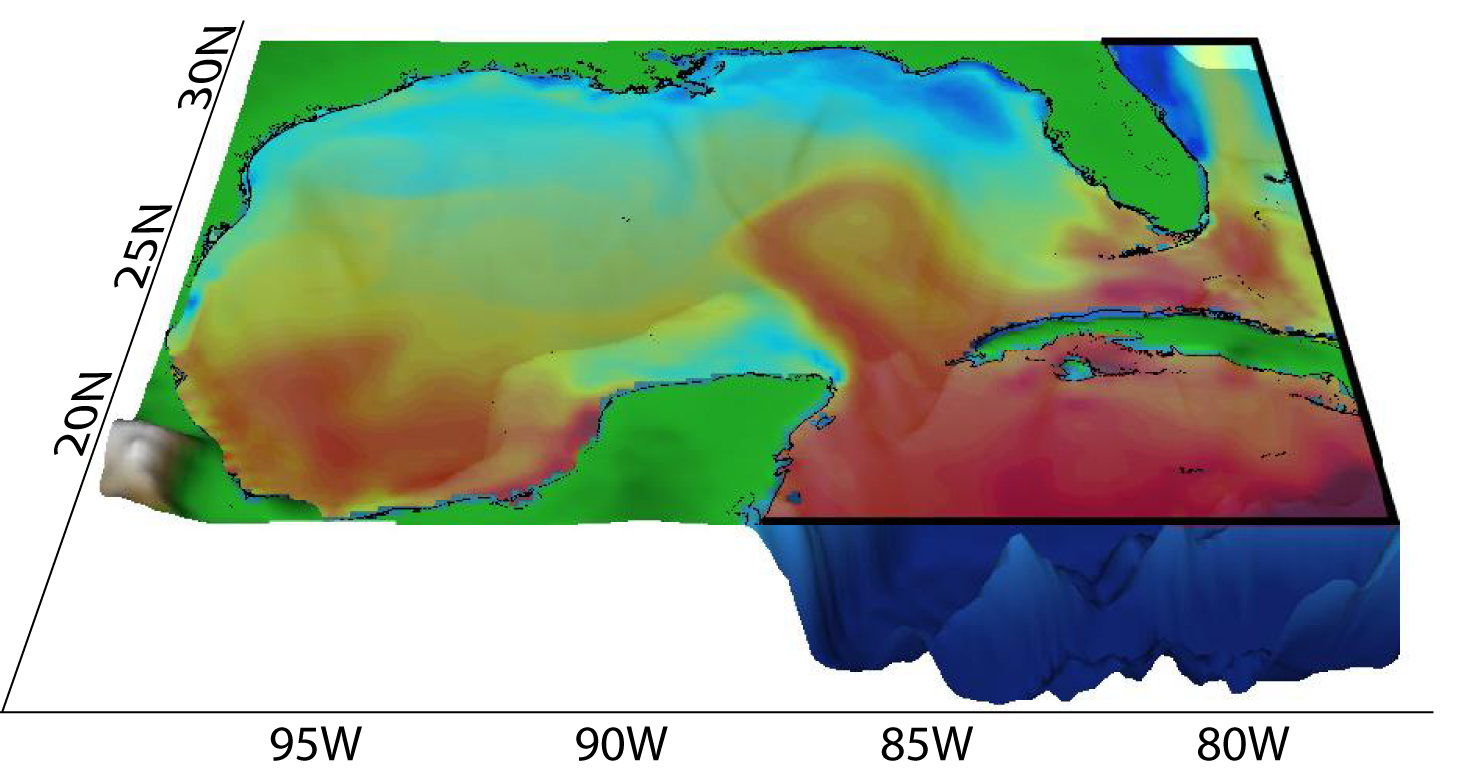United States Naval Research Laboratory
Bio-Optical/Physical Processes and Remote Sensing Section
Decadal-Scale Changes in Oceanic Heat Content for the Gulf of Mexico: A Model Study with Multi-disciplinary Implications to Climate Change
Objective:
The Intergovernmental Panel on Climate Change (IPCC) Fourth Assessment Report (AR4) projects secular increases in air temperatures for the remainder of this century due to anthropogenic greenhouse gas emissions. It is commonly presumed that projections of warmer air temperatures suggest a warmer surface ocean with the associated potential for increased hurricane intensity, sea-level rise, and the loss of ecosystems due to thermal stress. Since the ocean is generally a heat source for the atmosphere, and solar radiation is the principal heat source for the ocean, climate change projections for ocean temperatures have to be rigorously evaluated in the context of air-sea heat energy exchange processes and the regional variability of coupled air-sea interactions. We propose to leverage our numerical modeling expertise and operational ocean forecasting systems to conduct decadal-scale ocean model ensemble simulations to quantify the changes of oceanic heat content and estimate projections therein. First, we will conduct a thirty-year reanalysis of upper ocean heat content for the Gulf of Mexico using state-of-the-art numerical ocean models forced with NASA's Modern Era Retrospective-analysis for Research and Applications (MERRA) atmospheric data. Second, we will run thirty-year forecast and sensitivity experiments to examine simulated upper ocean heat content sensitivity to persistence and reasonable perturbations in pertinent atmospheric variables (e.g., wind stress, air temperature, and specific humidity). Third, we propose to provide projections of upper ocean temperatures in the Gulf of Mexico for the following thirty years along with a quantitative description of the uncertainty inherent in those estimates. The oceanic products resulting from our proposed study will complement the MERRA data to form a comprehensive 3D oceanic-atmospheric dataset, which, along with our regional oceanic heat content climate projections, will be contributed to the IPCC Fifth Assessment Report.

